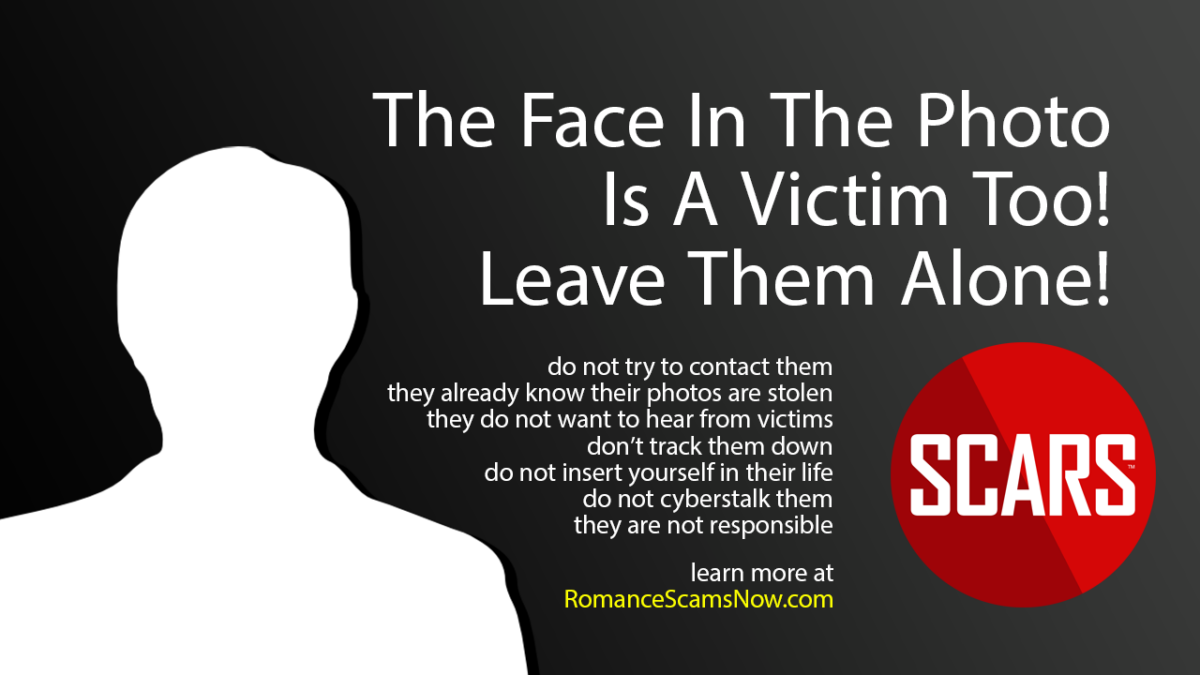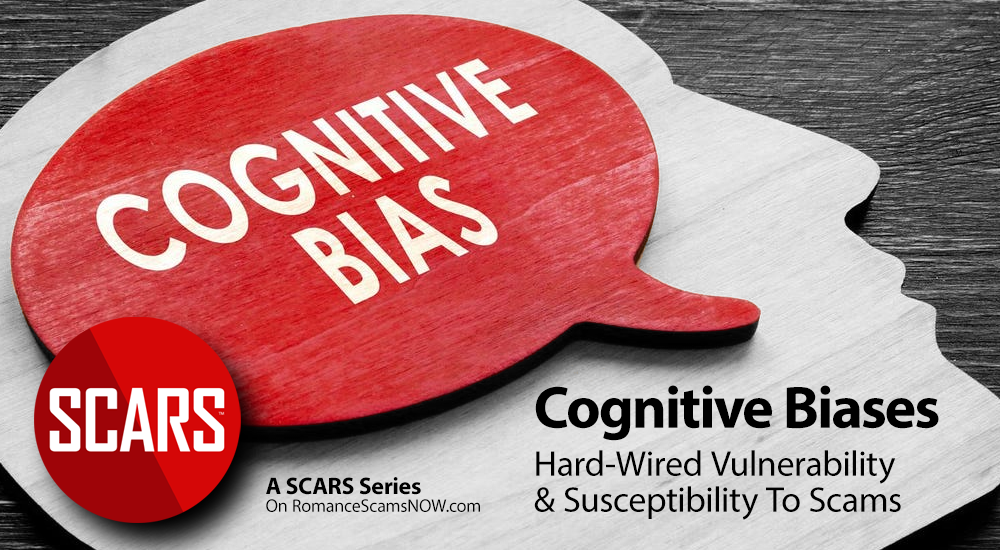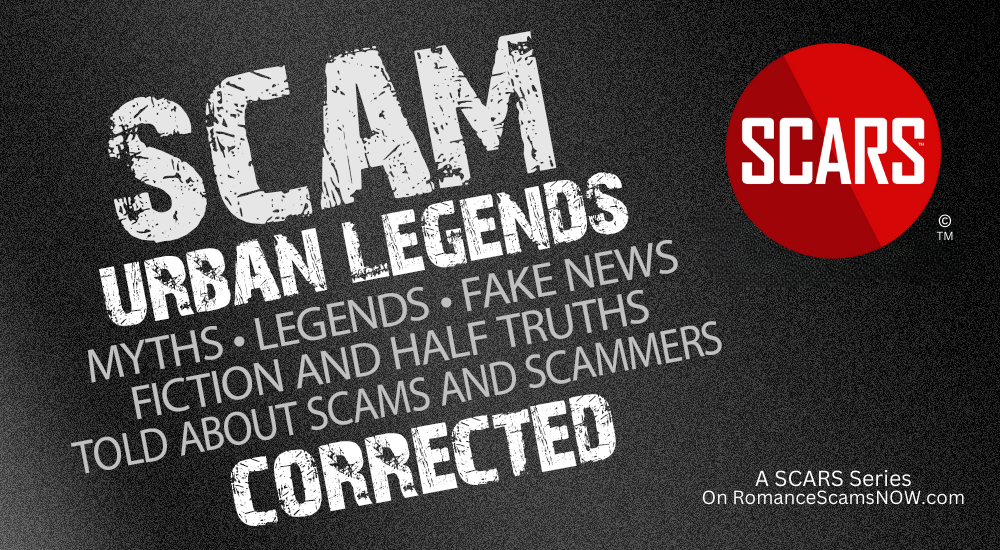
SCARS Institute’s Encyclopedia of Scams™ Published Continuously for 25 Years

Author:
• Tim McGuinness, Ph.D., DFin, MCPO, MAnth – Anthropologist, Scientist, Director of the Society of Citizens Against Relationship Scams Inc.
Article Abstract
The urban legend that individuals are too small to be hacked or scammed persists due to various misconceptions and cognitive biases.
People often underestimate the prevalence and sophistication of cyber threats, assuming they are immune to such attacks. This false sense of security stems from optimism bias, lack of awareness, and trust in online platforms’ security measures.
Additionally, individuals may minimize the risk of being targeted, believing they have nothing of significant value or are not engaged in high-risk online behavior.
However, cybercriminals exploit vulnerabilities indiscriminately, utilizing automated tools to target as many individuals as possible. As a result, everyone is susceptible to cyber threats, regardless of their perceived size or importance. Recognizing the realities of cybersecurity and adopting proactive measures is crucial for protecting oneself from falling victim to online scams and hacks.

The Urban Legend Myth of Being Unworthy of Cybercrime: Why You’re a Target Regardless of Size
In the world of cybercrime, there’s a prevailing urban legend or myth that individuals or small entities are immune to being targeted.
The urban legend continuously circulates that unless you’re a high-profile organization or possess significant wealth, hackers, scammers, or cybercriminals won’t bother with you, but this is really just denial. This urban legend or assumption couldn’t be further from the truth. In today’s interconnected world, everyone holds something valuable to cybercriminals: their personal information.
Just consider this: your Social Security number, credit card details, and other private data are like gold nuggets in the digital realm. Even if you perceive yourself as “small potatoes,” your data remains a lucrative target. Cybercriminals aren’t discriminating based on size; they’re after any information they can exploit for financial gain.
Data breaches are rampant, affecting organizations of all sizes. Your information may be stored or used on various platforms, from government websites to online shopping portals. Despite feeling secure, these platforms are not immune to breaches. Once your data is compromised, it becomes a commodity in the underground market, where it’s bought, sold, and traded among cybercriminals.
Moreover, automation has revolutionized cybercrime. Automated tools scour the internet, hunting for vulnerabilities and valuable data across countless targets simultaneously. This means that even if you perceive yourself as insignificant, automated processes can still expose your sensitive information to malicious actors.
Why Do People Believe This?
The urban legend belief that one is too small to be hacked or scammed stems from several misconceptions and cognitive biases that individuals commonly hold:
- Optimism Bias: Many people possess an inherent optimism bias, which leads them to believe that negative events are less likely to happen to them personally. This bias can lead individuals to underestimate the risks associated with cyber threats, assuming that they are immune to such attacks.
- Lack of Awareness: Some individuals may simply be unaware of the prevalence and sophistication of cyber threats in today’s digital landscape. Without a clear understanding of the risks, they may naively assume that cybercriminals only target high-profile organizations or wealthy individuals.
- False Sense of Security: Individuals often place their trust in the security measures implemented by online platforms and service providers. They may believe that as long as they use reputable websites or have antivirus software installed, they are safe from cyber threats. This false sense of security can lead to complacency and a disregard for basic cybersecurity practices.
- Minimization of Risk: When faced with complex and abstract threats like cybercrime, individuals may downplay the likelihood of being targeted. They may rationalize that because they have nothing of significant value or are not engaged in high-risk behavior online, they are unlikely to be targeted by cybercriminals.
- Attribution Bias: In cases where individuals do fall victim to cybercrime, there may be a tendency to attribute blame to external factors rather than acknowledging personal vulnerabilities. This can perpetuate the belief that cyber threats only happen to others and not to oneself.
The belief that one is too small to be hacked or scammed is a combination of cognitive biases, lack of awareness, and misplaced trust in technology. However, as cyber threats continue to evolve and proliferate, individuals need to recognize the importance of cybersecurity and take proactive measures to protect themselves online.
Protect Yourself
What can you do to protect yourself in this digital age?
Firstly, prioritize password security. Using unique passwords for each online account is crucial. While it may seem daunting to remember multiple passwords, employing a password manager can simplify this task and enhance your overall security. You can also get a password logbook here.
Additionally, consider investing in identity theft protection and breach-monitoring services. These services offer proactive measures to safeguard your personal information and notify you of any breaches or compromises promptly.
Ultimately, the urban legend or myth of being unworthy of cybercrime, scammers or hackers, is just that—a myth. In today’s digital landscape, everyone is a potential target, regardless of size or stature. By recognizing the value of your personal information and taking proactive steps to protect it, you can mitigate the risk of falling victim to cybercrime in an ever-evolving threat landscape.
More About Urban Legends & Myths:
- SCARS PEARL BOOK – The SCARS Online Safety Password Log Book – SCARS Company Store (againstscams.org)
- Cognitive Biases Catalog 2024 (romancescamsnow.com)
- Optimism Bias – Everything Will Be Fine (romancescamsnow.com)
- Never Again And Other Urban Legends (romancescamsnow.com)
- Urban Legends: JuJu/Voodoo – Hypnosis – Brainwashing (romancescamsnow.com)
- Scam Urban Legends: Anti-Scam Groups Are All Good? No! (romancescamsnow.com)
- Urban Legends – Topic Page (romancescamsnow.com)
- Urban Legends: The Lone Scammer [UPDATED] (romancescamsnow.com)
- URBAN LEGENDS: Why Scammers Ask For Photos? (romancescamsnow.com)
- Online Safety: Identifying Hoaxes and Urban Legends (romancescamsnow.com)
- Urban Legends: Do Something Useful With Their Lives! (romancescamsnow.com)
- Urban Legends – Chapter 2 – Scammers Are Stupid? (romancescamsnow.com)
- Urban Legends – Chapter 4 – Obsessive Scammer Exposing – Updated (romancescamsnow.com)
-/ 30 /-
What do you think about this?
Please share your thoughts in a comment below!
Table of Contents
LEAVE A COMMENT?
Thank you for your comment. You may receive an email to follow up. We never share your data with marketers.
Recent Comments
On Other Articles
- on Love Bombing And How Romance Scam Victims Are Forced To Feel: “I was love bombed to the point that I would do just about anything for the scammer(s). I was told…” Feb 11, 14:24
- on Dani Daniels (Kira Lee Orsag): Another Scammer’s Favorite: “You provide a valuable service! I wish more people knew about it!” Feb 10, 15:05
- on Danielle Delaunay/Danielle Genevieve – Stolen Identity/Stolen Photos – Impersonation Victim UPDATED 2024: “We highly recommend that you simply turn away form the scam and scammers, and focus on the development of a…” Feb 4, 19:47
- on The Art Of Deception: The Fundamental Principals Of Successful Deceptions – 2024: “I experienced many of the deceptive tactics that romance scammers use. I was told various stories of hardship and why…” Feb 4, 15:27
- on Danielle Delaunay/Danielle Genevieve – Stolen Identity/Stolen Photos – Impersonation Victim UPDATED 2024: “Yes, I’m in that exact situation also. “Danielle” has seriously scammed me for 3 years now. “She” (he) doesn’t know…” Feb 4, 14:58
- on An Essay on Justice and Money Recovery – 2026: “you are so right I accidentally clicked on online justice I signed an agreement for 12k upfront but cd only…” Feb 3, 08:16
- on The SCARS Institute Top 50 Celebrity Impersonation Scams – 2025: “Quora has had visits from scammers pretending to be Keanu Reeves and Paul McCartney in 2025 and 2026.” Jan 27, 17:45
- on Scam Victims Should Limit Their Exposure To Scam News & Scammer Photos: “I used to look at scammers photos all the time; however, I don’t feel the need to do it anymore.…” Jan 26, 23:19
- on After A Scam, No One Can Tell You How You Will React: “This article was very informative, my scams happened 5 years ago; however, l do remember several of those emotions and/or…” Jan 23, 17:17
- on Situational Awareness and How Trauma Makes Scam Victims Less Safe – 2024: “I need to be more observant and I am practicing situational awareness. I’m saving this article to remind me of…” Jan 21, 22:55
ARTICLE META
Important Information for New Scam Victims
- Please visit www.ScamVictimsSupport.org – a SCARS Website for New Scam Victims & Sextortion Victims
- Enroll in FREE SCARS Scam Survivor’s School now at www.SCARSeducation.org
- Please visit www.ScamPsychology.org – to more fully understand the psychological concepts involved in scams and scam victim recovery
If you are looking for local trauma counselors please visit counseling.AgainstScams.org or join SCARS for our counseling/therapy benefit: membership.AgainstScams.org
If you need to speak with someone now, you can dial 988 or find phone numbers for crisis hotlines all around the world here: www.opencounseling.com/suicide-hotlines
A Note About Labeling!
We often use the term ‘scam victim’ in our articles, but this is a convenience to help those searching for information in search engines like Google. It is just a convenience and has no deeper meaning. If you have come through such an experience, YOU are a Survivor! It was not your fault. You are not alone! Axios!
A Question of Trust
At the SCARS Institute, we invite you to do your own research on the topics we speak about and publish, Our team investigates the subject being discussed, especially when it comes to understanding the scam victims-survivors experience. You can do Google searches but in many cases, you will have to wade through scientific papers and studies. However, remember that biases and perspectives matter and influence the outcome. Regardless, we encourage you to explore these topics as thoroughly as you can for your own awareness.
Statement About Victim Blaming
SCARS Institute articles examine different aspects of the scam victim experience, as well as those who may have been secondary victims. This work focuses on understanding victimization through the science of victimology, including common psychological and behavioral responses. The purpose is to help victims and survivors understand why these crimes occurred, reduce shame and self-blame, strengthen recovery programs and victim opportunities, and lower the risk of future victimization.
At times, these discussions may sound uncomfortable, overwhelming, or may be mistaken for blame. They are not. Scam victims are never blamed. Our goal is to explain the mechanisms of deception and the human responses that scammers exploit, and the processes that occur after the scam ends, so victims can better understand what happened to them and why it felt convincing at the time, and what the path looks like going forward.
Articles that address the psychology, neurology, physiology, and other characteristics of scams and the victim experience recognize that all people share cognitive and emotional traits that can be manipulated under the right conditions. These characteristics are not flaws. They are normal human functions that criminals deliberately exploit. Victims typically have little awareness of these mechanisms while a scam is unfolding and a very limited ability to control them. Awareness often comes only after the harm has occurred.
By explaining these processes, these articles help victims make sense of their experiences, understand common post-scam reactions, and identify ways to protect themselves moving forward. This knowledge supports recovery by replacing confusion and self-blame with clarity, context, and self-compassion.
Additional educational material on these topics is available at ScamPsychology.org – ScamsNOW.com and other SCARS Institute websites.
Psychology Disclaimer:
All articles about psychology and the human brain on this website are for information & education only
The information provided in this article is intended for educational and self-help purposes only and should not be construed as a substitute for professional therapy or counseling.
While any self-help techniques outlined herein may be beneficial for scam victims seeking to recover from their experience and move towards recovery, it is important to consult with a qualified mental health professional before initiating any course of action. Each individual’s experience and needs are unique, and what works for one person may not be suitable for another.
Additionally, any approach may not be appropriate for individuals with certain pre-existing mental health conditions or trauma histories. It is advisable to seek guidance from a licensed therapist or counselor who can provide personalized support, guidance, and treatment tailored to your specific needs.
If you are experiencing significant distress or emotional difficulties related to a scam or other traumatic event, please consult your doctor or mental health provider for appropriate care and support.
Also read our SCARS Institute Statement about Professional Care for Scam Victims – click here to go to our ScamsNOW.com website.
















Looking back, I am now aware of how much information I actually shared. My scammers had plenty to work with.